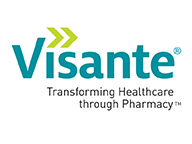SPONSORED CONTENT
In 2024, pharmacy will play an even more significant and critical role in health systems’ financial and operational performance nationwide. While health systems face daunting challenges, increasing risks, and suffocating regulatory and compliance burdens, high-performing pharmacy organizations are poised to mitigate financial losses and improve operations. We’ve never been more bullish about the opportunities for engaged pharmacy executives and leaders in the years ahead.
Skyrocketing drug costs, 340B challenges, growing demands on a shrinking workforce, and the leakage of infusion services and associated financial losses are a few of the challenges we discuss here. But with challenges come opportunities, and in this edition of Visante’s Top 10, we’re pleased to offer exciting and timely solutions that health systems can take advantage of in 2024 and beyond.
Here are our picks for the Top 10 challenges for 2024. To see Visante’s full article including recommendations for tackling these challenges, click here.
- Winning in the Face of Pharmacy Workforce Challenges: Workforce shortages across the health system disrupt all aspects of the organization. Pharmacists and pharmacy techs are no exception, and a lack of staff exacerbates the risk of medication error. We offer three solutions for leaders to consider, including reframing practice advancement, refining the role of pharmacy in inpatient settings, and refining the role of pharmacy in outpatient settings. Leading health systems have put these solutions to work and are experiencing positive clinical, operational, and financial results.
- Mitigate Contract Pharmacy Restrictions with an Internal Specialty Pharmacy Program: Increasing losses from 340B program pharmacy restrictions are a significant risk to critical patient care programs and the bottom line. The first step to help relieve some of these losses is to conduct a thorough assessment of prescription leakage outside the organization and then to develop a multi-prong approach to recapture that business.
- Recognize the Value of Pharmacy-based Ambulatory Infusion Suites: In 2024, we expect pharmacy-based ambulatory infusion suites to become a crucial way for health systems to address the challenges in site of care while supporting nursing efficiency. Pharmacy-based ambulatory infusion suites require an essential coordination strategy across multiple sites of care that organizations should focus on in the coming year.
- Tackle common pharmacy revenue cycle challenges: Pharmacy revenue cycle is a key revenue driver for health systems. Medical benefit claims, with an average denial rate of 5-10%, can overlap with pharmacy in many areas, including specialty pharmacy, infusion services, and the supply chain. When evaluating the pharmacy revenue cycle, these components come together to offer valuable insights as part of a bigger picture. Basic pharmacy coding, managed care contracting and creating an integrated pharmacy revenue cycle team are all familiar challenges that must be overcome.
- Expanding opportunities for pharmaceutical manufacturers and health system alignment: In 2024, we expect greater alignment between manufacturers and health systems. As payors continue to push for value-based healthcare and new medications and biologics administered in hospitals hit the market, manufacturers and health systems have added incentives to collaborate. Three key areas of collaboration include Pre-approval Information Exchange, collaborative population health management, and digital and technical solutions such as remote patient monitoring.
- Private Equity Investments Have a Greater Impact on Health Systems: Private equity firms are active in the pharmacy sector due to the industry’s potential for growth. The aging population, technological advancements and escalating healthcare demands create growing interest and investment. Recent data reveals a substantial surge in private equity activity, with a 250% increase from 2010 to 2020. The fast-paced nature of private equity firms contrasts dramatically with slow-moving health systems burdened by complex structures and regulations.
- Adopt Innovative Strategies for 340B Success: It’s no surprise that health systems with 340B programs should prepare for high volatility and rapid pace of change in 2024. Continued manufacturer pressures to restrict contract pharmacy programs, escalating data requirements, enhanced audit oversight, 340B-related litigation, and increased congressional investigations create mounting pressure. Program protection and finding ways to stretch scarce resources are of the utmost concern.
- GRIT is a Required Attribute for the Successful Pharmacy Leader in 2024: More health system executives recognize the opportunities in pharmacy for improved clinical, operational, and financial performance and are looking to their pharmacy executives to deliver strategies that drive organizational results. This means pharmacy leaders MUST come to the table with growth-minded, business-focused, and patient-centric solutions that will help positively transform the organization. The pharmacy executive who delivers exceptional patient care and bottom-line value to the organization, facilitates a culture that fosters the growth of others and team success, and demonstrates GRIT will excel in 2024.
- Embrace Strategies for Operational Efficiency: Growing financial challenges and pervasive staffing shortages may mean doing more with less. Health system pharmacies are searching for proactive ways to operate more efficiently, become increasingly nimble and create more robust financial performance for the organization. We see a four-pronged approach for our health system clients looking to become more operationally efficient. This approach includes service standardization, centralized services, embracing and optimizing key technologies, and deploying effective benchmarking. A successful example of this approach is developing and operationalizing a Centralized Service Center.
- Prescription Drug Prices Again a Challenge in 2024: Drug prices are again a pain point for 2024 and remain challenging for pharmacy and health systems. Health system leaders should consider the impact on their organization created by the Inflation Reduction Act, biosimilar specialty drugs, Pharmacy Benefit Managers (PBMs), drug shortages, and market disruptors, such as RxPass, Civica Rx, and Mark Cuban Cost Plus Drugs. We also recommend specific strategies to mitigate the rising costs and find opportunities to improve financial performance.
For questions, please contact Kristin Fox-Smith at kfoxsmith@Visanteinc.com.

Jim Jorgenson is the President and CEO of Visante.



